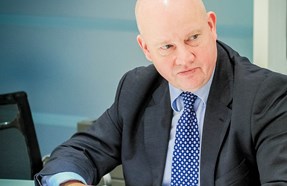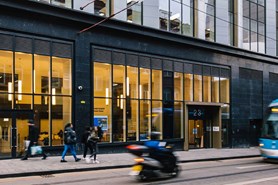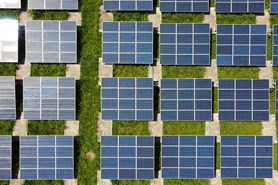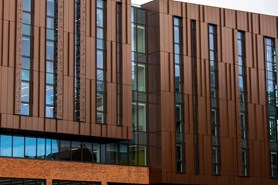It has been a turbulent couple of years to say the least. Covid-19, the Suez Canal blockages, and Russia’s invasion of Ukraine have all served to reshape the global stage in the short term, and the climate crisis is an ongoing concern.
It seems appropriate, then, that the Collins Dictionary chose “permacrisis’ as 2022’s word of the year. It means “an extended period of instability and insecurity”.
The fact that nothing is certain now seems the only certainty, but what does that mean for the worldwide construction industry going into 2023?
Tough geopolitics
Sadly, a prolonged conflict in eastern Europe looks likely and, with relations between China and Taiwan deteriorating, the permacrisis looks set to continue.
Trading relationships are becoming increasingly cautious, influenced by sanctions and a changing world order. The climate crisis is only adding to the consequences of these geopolitical pressures, with hundreds of millions threatened by famine. The World Food Programme warns that we’re “facing the worst humanitarian and food crisis since World War II”.
The general consensus is that there will be a weakening of the global economy this year. In 2022 we saw high levels of inflation for many countries as Russia’s invasion led to spikes in energy and food prices, which added to the inflation caused by our emergence from the pandemic.
Governments now face mounting pressure to support citizens with the rising cost of living, with the energy crisis highlighting the dangers of an over reliance on imported resources.
Construction issues
Across Gleeds, teams everywhere from Manchester to Manhattan reported significant cost escalation in 2022, and we know that projects have been slower to get to site.
Longer lead-in times and the availability of materials have been driving up tender prices, as have energy and transport costs, while in some markets, currency depreciation has added further pressure.
Inflation could ease amid squeezed incomes, the increased cost of borrowing, and falling house prices.
But despite the overall gloom, forecasters do see bright spots in the global economy for the year ahead.
On the brighter side …
Growth is anticipated for many Latin American countries as raw materials prices increase. The outlook is also somewhat more favourable for Asia. China’s zero-covid policy subdued its economy and its end should lead to an improvement in fortunes.
India’s economy is positively booming thanks to digital, tech, and energy.
The US may also avoid a downturn in part because data on economic activity is nowhere close to recessionary. GDP grew 2.6% (annualised) in the third quarter, according to an advance report. Indeed, a further 261,000 jobs were added in the US last month.
Around the world, investment is flooding into energy security and supply, as achieving net zero by 2050 requires considerable funding.
A McKinsey report found that capital spending on physical assets for energy and land-use systems during the transition will reach approximately $275 trillion.
Alongside this, shifting demographics and evolving needs will necessitate further infrastructure investment.
Taking all this into consideration, there is a strong pipeline of work for the global industry and a cautious optimism permeates as a result.
As we enter 2023, it’s clear that many of the challenges which blighted construction last year will persist to some extent. Materials and labour cost escalation are still a primary concern, energy supplies remain precarious and elevated costs will inevitably impact production. High inflation also influences salary expectations, and some markets are experiencing ongoing labour shortages.
So, while I join Gleeds' colleagues across the globe in their delight at the prospect of a strong pipeline of work on offer, I can’t help but worry that Collins’ 2022 Word of the Year might be just as relevant over the coming 12 months as it was the last.
Graham Harle, CEO, Gleeds Worldwide
First published in Global Construction Review on 06/01/2023

Graham Harle
Chief Executive Officer
- graham.harle@gleeds.com
- +44 (0)207 631 7000

Julian Barlow
PR Consultant
- corporate.comms@gleeds.com
- +44 (0)1628 857979



